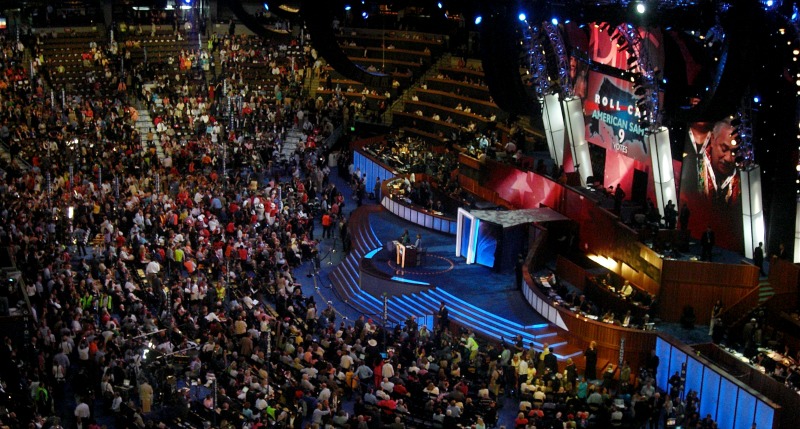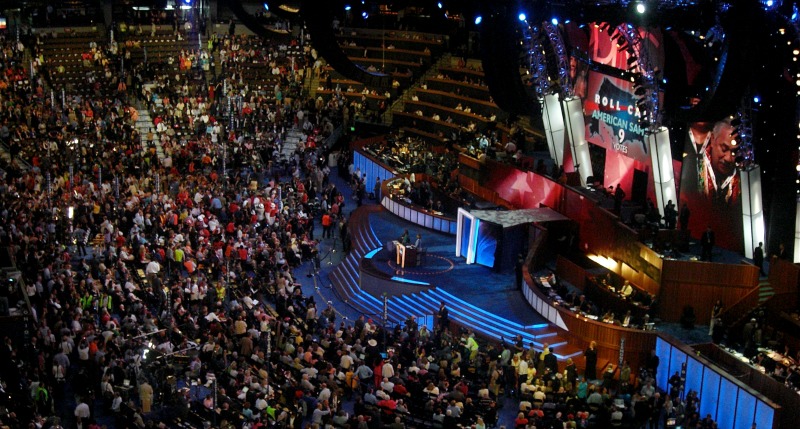What happens if the primary presidential elections don’t end with a candidate who has enough delegates to secure their party’s nomination? A fight at the party convention this summer.

Prior to the growth of state-based primary and caucuses selecting presidential candidates out of a slew of strong nominees with big followings, a party’s final nominee was selected at the Democratic and Republican National Conventions. In fact, that was the main point of the conventions (along with solidifying a platform, which still happens at modern-day conventions). That means most conventions held a vote, or many votes, among delegates, until a candidate received a plurality. In one extreme example, the 1924 Democratic National Convention was hopelessly deadlocked—delegates and party officials were deeply divided on whether their platform should endorse Prohibition, and whether or not to condemn the Ku Klux Klan. After factions led by New York governor Al Smith and former Treasury Secretary William McAdoo deadlocked for a stunning 102 ballots, a compromise candidate—ambassador John W. Davis—was named the presidential nominee on ballot no. 103. (Davis ultimately lost in a landslide to incumbent Republican president Calvin Coolidge.)
The last time a Republican convention opened without a nominee decided in the primaries was in 1976. In one of the new times in history where an incumbent president was challenged in his re-election bid, Gerald Ford had a tiny lead in the popular vote and delegate count over California governor Ronald Reagan. A delegate ballot had to take place, but on the first ballot, enough delegates switched to Ford’s camp to secure him the nomination. (He lost in the general election to Jimmy Carter.)
The 1980 Democratic convention wasn’t supposed to be contested—President Carter had won enough delegates to be the party’s nominee. But he was not a popular president, and in the primaries he faced a substantial challenge from Massachusetts senator Ted Kennedy. Kennedy’s staff actively courted committed Carter delegates on the convention floor and urged them to switch to Kennedy’s side, arguing that he had a better chance of beating Republican nominee Ronald Reagan in the general election. A handful of delegates did switch, requiring a vote. Carter won on the first ballot (and lost to Reagan in November.)

A Short History of Brokered Conventions







